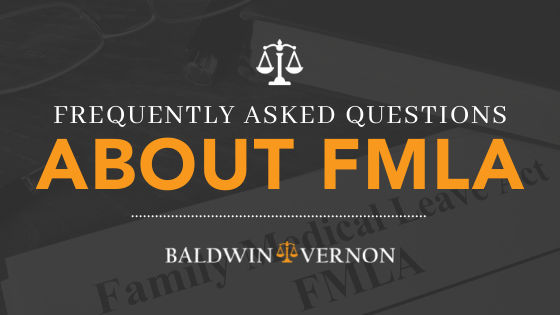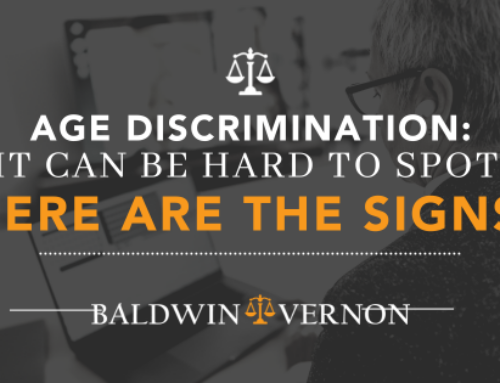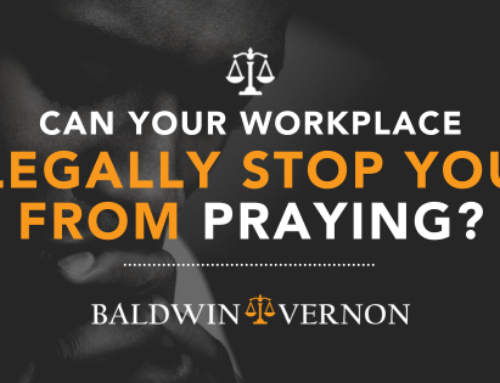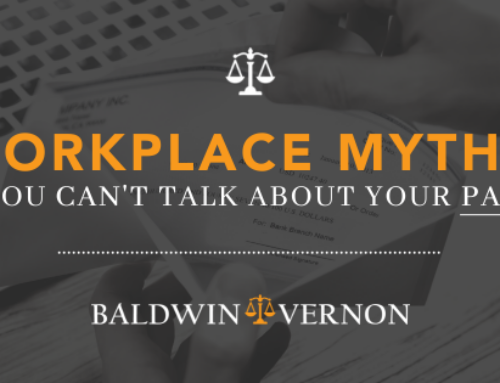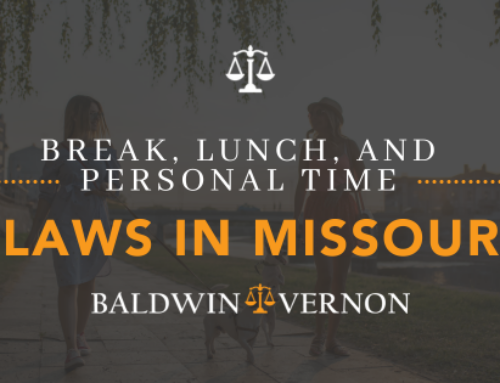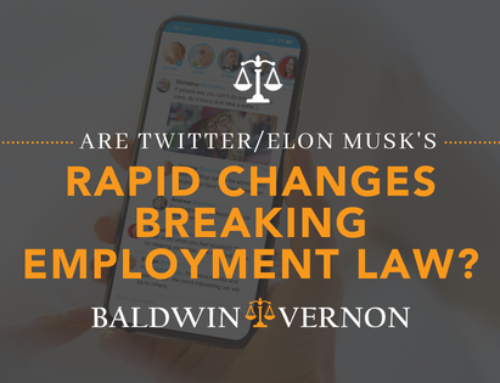Signed into law in 1993 by President Bill Clinton, the Family and Medical Leave Act (FMLA) provides eligible employees up to 12 workweeks of unpaid leave a year, and requires group health benefits to be maintained during the leave as if employees continued to work instead of taking leave. Employees are also entitled to return to their same or an equivalent job at the end of their FMLA leave.
The FMLA also provides certain military family leave entitlements. Eligible employees may take FMLA leave for specified reasons related to certain military deployments of their family members. Additionally, they may take up to 26 weeks of FMLA leave in a single 12-month period to care for a covered service member with a serious injury or illness.
Here are some of the most commonly asked questions we get about FMLA, along with their answers.
What qualifies as a serious health condition?
The most common serious health conditions that qualify for FMLA leave are:
- Conditions requiring an overnight stay in a hospital or other medical care facility
- Conditions that incapacitate you or your family member (for example, unable to work or attend school) for more than three consecutive days and have ongoing medical treatment (either multiple appointments with a health care provider, or a single appointment and follow-up care such as prescription medication)
- Chronic conditions that cause occasional periods when you or your family member are incapacitated and require treatment by a health care provider at least twice a year
- Pregnancy (including prenatal medical appointments, incapacity due to morning sickness, and medically required bed rest).
Who is eligible to take FMLA leave?
You are likely eligible to take FMLA leave if you:
- Have worked 1,250 hours during the 12 months prior to the start of leave
- Work at a location where the employer has 50 or more employees within 75 miles
- Have worked for the employer for 12 months. The 12 months of employment are not required to be consecutive in order for the employee to qualify for FMLA leave. In general, only employment within seven years is counted unless the break in service is (1) due to an employee’s fulfillment of military obligations, or (2) governed by a collective bargaining agreement or other written agreement.
Is my employer required to pay me when I take FMLA leave?
The FMLA only requires unpaid leave. However, the law permits an employee to elect, or the employer to require the employee, to use accrued paid vacation leave, paid sick or family leave for some or all of the FMLA leave period. This means that your job could require you to use available sick and or vacation accruals during FMLA leave.
Do you have to take leave all at once or can it be taken periodically?
The rules state that when it is medically necessary, employees are allowed to take FMLA leave intermittently – taking leave in separate blocks of time for a single qualifying reason – or on a reduced leave schedule – reducing the employee’s usual weekly or daily work schedule. They go on to state that when leave is needed for planned medical treatment, the employee must make a reasonable effort to schedule treatment so as not to unduly disrupt the employer’s operation.
How long does an employer have to determine and let you know if you are eligible for FMLA?
Outside of special circumstances, the regulations require an employer to notify an employee of whether the employee is eligible to take FMLA leave (and, if not, at least one reason why the employee is ineligible) within five business days of the employee requesting leave or the employer learning that an employee’s leave may be for a FMLA-qualifying reason.
Am I required to prove that I have a serious health condition?
An employer may require that the need for leave for a serious health condition of the employee or the employee’s immediate family member be supported by a certification issued by a health care provider. The employer must allow the employee at least 15 calendar days to obtain the medical certification.
Can my employer make me get a second opinion?
An employer may require a second or third medical opinion (at the employer’s expense) if he or she has reason to doubt the validity of the medical certification.
Do I have to give my employer my medical records for leave due to a serious health condition?
No. You are not required to give your employer your medical records. Employers, however, do have a statutory right to request that an employee provide medical certification containing sufficient medical facts to establish that a serious health condition exists.
May my employer contact my health care provider about my serious health condition?
Yes, as long as they do so in compliance with the Health Insurance Portability and Accountability Act (HIPAA) privacy regulations. Under HIPAA, your direct supervisor cannot contact your health care provider, but a human resource professional, leave administrator, or management official can. When contacting, they can only ask for clarification of what is on the medical certification form, and can only reach out if they have a written authorization from you.
Do you have to sign a medical release as part of a medical certification?
No. An employer may not require any employee to sign a release or waiver as part of the medical certification process. The regulations specifically state that completing any such authorization is at the employee’s discretion. Whenever an employer requests a medical certification, however, it is the employee’s responsibility to provide the employer with a complete and sufficient certification. If you do not provide either a complete and sufficient certification or an authorization allowing the health care provider to provide a complete and sufficient certification to the employer, your request for FMLA leave may be denied.
Can employers require employees to submit a fitness-for-duty certification before returning to work after being absent due to a serious health condition?
Yes. As a condition of restoring an employee who was absent on FMLA leave due to the employee’s own serious health condition, an employer may have a uniformly applied policy or practice that requires all similarly situated employees who take leave for such conditions to submit a certification from the employee’s own health care provider that the employee is able to resume work. Under the regulations, an employer may require that the fitness-for-duty certification address the employee’s ability to perform the essential functions of the position if the employer has appropriately notified the employee that this information will be required and has provided a list of essential functions. Additionally, an employer may require a fitness-for-duty certification up to once every 30 days for an employee taking intermittent or reduced schedule FMLA leave if reasonable safety concerns exist regarding the employee’s ability to perform his or her duties based on the condition for which leave was taken.
The most important thing to note here is that your job must be able to prove that the policy is applied to everyone in similar circumstances, and must tell you in advance.
What happens if I do not submit a requested medical or fitness-for-duty certification?
If you fail to submit a properly requested medical certification (absent sufficient explanation of the delay), FMLA protection for your leave may be delayed or denied. If you never provide a medical certification, then the leave is not FMLA leave.
The rules go on to state that if an employee fails to submit a properly requested fitness-for-duty certification, their employer may delay job restoration until that employee provides the certification. If the employee never provides the certification, he or she may be denied reinstatement.
Essentially, you will be out of a job.
If you have questions about how the FMLA program might apply to your unique situation, please reach out to our team at Baldwin & Vernon to discuss your options. When filing an FMLA claim, it is very important to follow the procedures necessary to guarantee your job protection. We at Baldwin & Vernon can help make sure that you are protected as you are on leave, and that you do not experience any harassment or retaliation upon returning to work.


